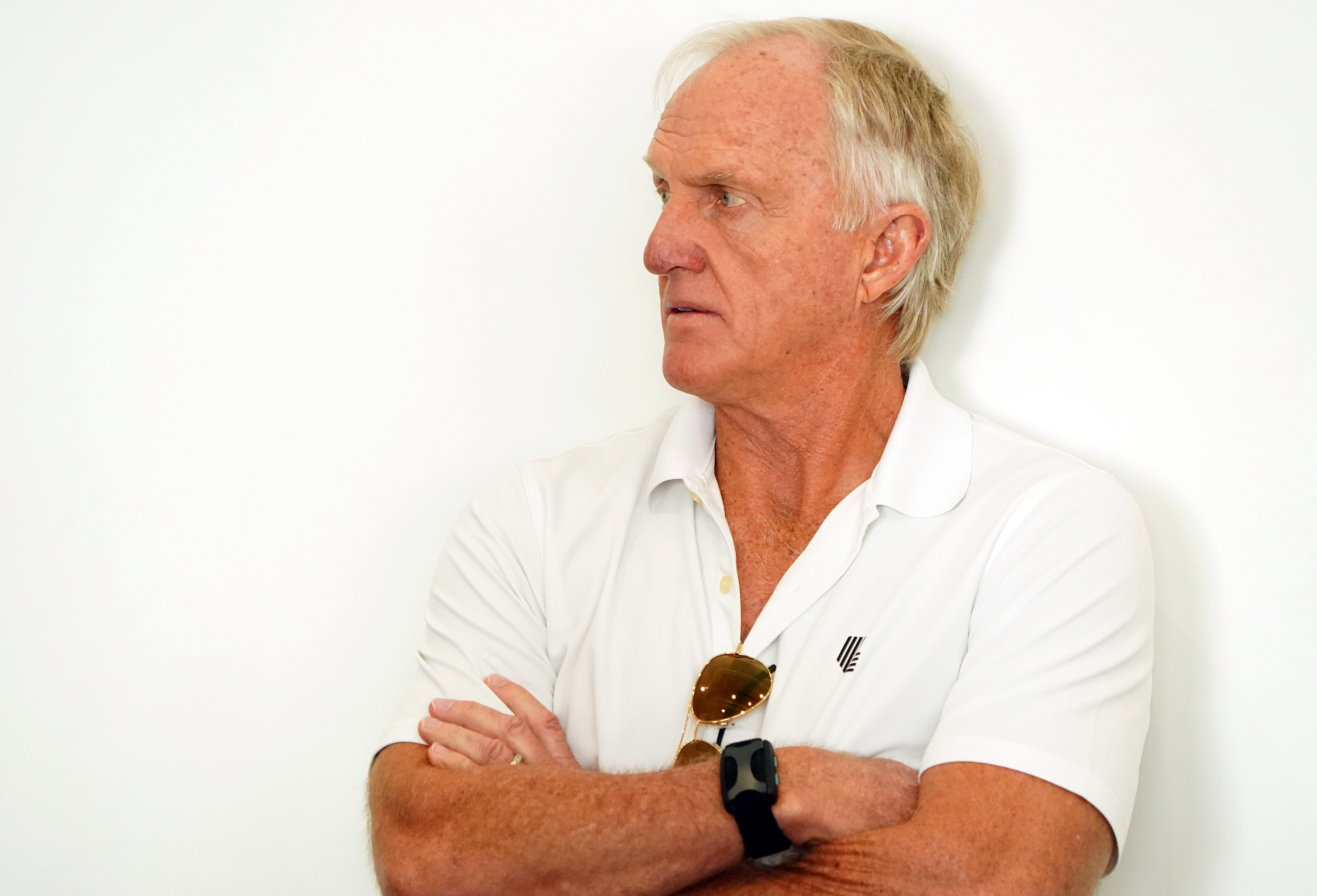A shark left to thrash around on a dry deck hopelessly gasping for water will survive only a few minutes, so there exists at least one metric by which Greg Norman can be said to have exceeded expectations during his tenure as CEO of LIV Golf.
The ceaseless sluice of reports, rumors and conjecture about LIV has resurfaced speculation that the flaxen-haired finger puppet could be replaced by the former CEO of TaylorMade, Mark King. I reached out to King through a mutual friend in July; he responded saying he wouldn’t be taking the job. If King does end up running LIV, his denial and subsequent volte-face would at least give him something in common with his players, and as the current CEO of Taco Bell he can certainly boast relevant experience in repackaging the synthetic and unpalatable as authentic and nourishing.
A change in LIV’s leadership won’t simply be about sidelining a polarizing figure motivated by a personal animus against the PGA Tour and viewed with disdain by many top players, including some he has caressed with MBS’s cash. Swapping out the Shark would suggest short-term desperation more than long-term determination, perhaps even a new face-saving strategy by the Saudis. It would also represent the only move left for LIV before having to acknowledge that the fundamental problem isn’t who captains the ship.
Despite Norman’s inexhaustible bluster and bots, all is not well in the LIV metaverse. While the PGA Tour has given its loyalists what they demanded—elite events, more lucrative prize funds, bigger bonuses—LIV has provided its recruits nothing of what they were promised except cash. There is no uncontested right to cherry pick from other tours, no world ranking points, no clear pathway to the majors, no broadcast rights deal, no audience, no public acclaim as visionaries, no applause for growing the game.
The Saudis secured what they could—players, a handful of unemployed executives, the goodwill of media influencers thirsty for access—but even the kingdom’s resources haven’t been able to buy fan loyalty or the acquiescence of golf’s established institutions. Team golf is a tough sell, but moreso when the product is lousy and the association with a merciless regime too toxic for commercial sponsors. That reality won’t be altered by replacing a CEO whose confidence far outpaces his competency.
Recent days have brought rumblings of discontent among LIV players and reports of belt-tightening on the lavish perks once bestowed on their entourages. More ominous for Norman—or whatever luckless executive replaces him—are whispers that a reckoning is nearing on the one question for which LIV has no good answer: where is the return on investment? Even MBS has limits on how much he’ll be taken for a fool by the Pat Perezs of the world.
If it were held to conventional business standards, LIV would have already collapsed under the weight of its strategic shortcomings and managerial ineptitude, much less its amoral financiers. That it hasn’t is owed to Saudi benevolence and the ample ranks of those willing to prostrate themselves for it. What it needs to endure now, however, is an absence of spine in those who know better.
The coming months will see a steadily increasing drumbeat from a band of gobshites and charlatans who insist a deal must be reached for the good of the game, that accommodating LIV is the only way forward for professional golf. Some will advocate for such an agreement just because they abhor conflict. But for others it will be nothing more than a noble-sounding means to keep Saudi money in the game long enough to peel off their share.
The narrative we’ll hear from these graduates of the Neville Chamberlain school of diplomacy will demand that the PGA and DP World tours act as defibrillators for LIV, that they must come together to resuscitate an ebbing party so others may pick its pockets a while longer. That position is as shameless as it is specious, and needs to be dismissed with contempt. Only one of these tours is endangered, and it isn’t headed by Jay Monahan or Keith Pelley.
Whatever divisions need to be bridged in golf, whatever personal relationships must be healed, doing so cannot involve offering the sport wholesale as a life raft for sportswashing ambitions in Riyadh. No amount of investment by the Saudi Arabian regime can be rendered respectable or accepted without dire reputational consequences for the entire sport. Golf cannot choose to host a cancer and expect to remain healthy.

